- 1. China-Africa Trade Overview
- 2. Shipping Methods Comparison
- 3. Import Duties & Taxes
- 4. Top Import Products
- 5. Cost Calculation Breakdown
- 6. Customs Clearance Process
- 7. Finding Reliable Suppliers
- 8. Africa Free Zones Benefits
- 9. African Port Facilities
- 10. Cultural Considerations
- 11. Legal & Regulatory Compliance
- 12. Insurance & Risk Management
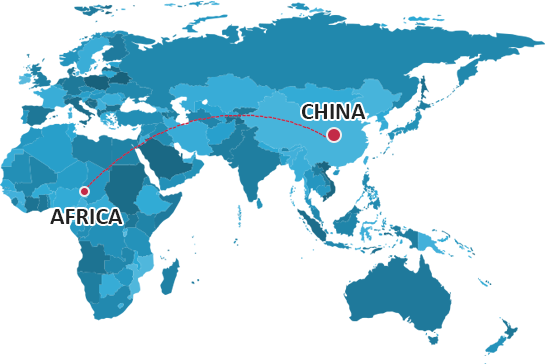
SHIPPING FROM CHINA TO Africa
As a comprehensive one-stop China logistics services forwarder, we offer a full range of freight services to companies with unique shipping needs. Our top priority is safety and on-time delivery, and we strive to provide reliable and cost-effective logistics services to our clients.
If you require freight services for shipping from China to Asia, our website allows you to browse by region and select the countries of interest to obtain more information about our services. We aim to make shipping easy, allowing you to focus on your business while we take care of the rest. As your Asia shipping specialist in China, please feel free to contact us via email overseas.01@winsaillogistics.com or call us (+86) 155 2138 6355
Why Partner with Us for Africa Logistics?

Africa-Optimized Shipping Economics
Strategic carrier partnerships deliver market-leading rates for Africa-bound freight, with specialized routing through Dar es Salaam and Mombasa gateways.

Rainy Season Capacity Assurance
Exclusive allocations for critical infrastructure projects during April-June rainy periods, with guaranteed LCL/FCL availability.

Cross-Border Visibility
IoT-enabled tracking from Chinese factories to Congo River ports and Sahelian landlocked countries, with real-time customs delay alerts.

Multilingual Africa Solutions
Full-service execution including COMESA certification, French/Portuguese documentation, and delivery to 38 African countries through our regional hubs.

Regional Customs Mastery
In-country teams handle SADC/EAC/COMESA regulations, including duty remission schemes and temporary import permits.

Pan-African Support Network
Multilingual (English/French/Portuguese) teams covering Johannesburg, Lagos, and Nairobi time zones, with 24/7 emergency response for port strikes.
Winsail Commitment
Our Mission
To become a leading logistics services provider from China helping small and medium-sized enterprises succeed.
Our Vision
To grow our business together with growth of our staff, suppliers, and clients.
Our Slogan
Bear your cargo, March with safe and efficient.
2024 Complete Guide - Shipping from China to Africa
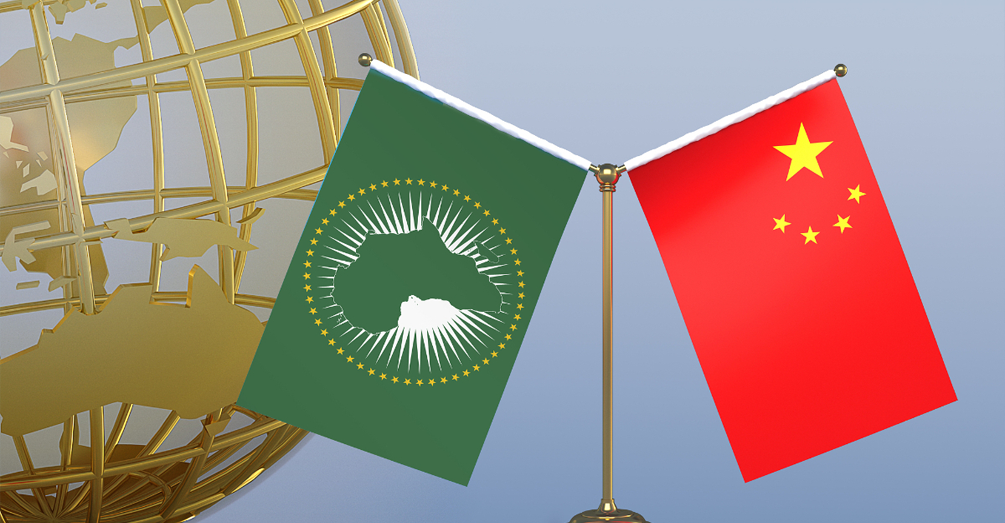
Managing shipments from China to Africa requires specialized knowledge of maritime logistics, regional trade regulations, and cultural considerations across diverse markets. This guide provides Africa-specific strategies to optimize your import operations and enhance profitability across the continent.
1. China-Africa Trade Overview
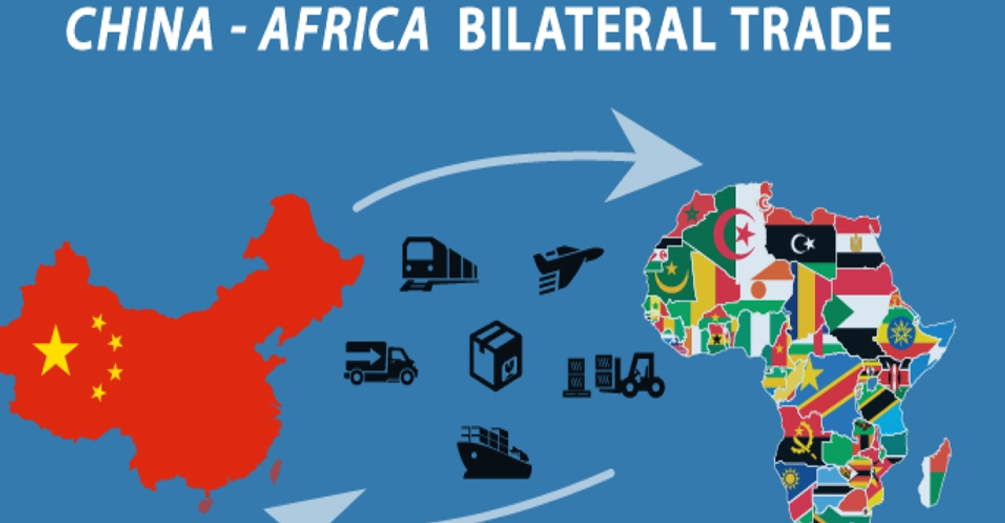
| Key Indicator | 2024 Data | Market Trend |
|---|---|---|
| Bilateral Trade Volume | $282 billion (2023 Full Year) | ↑ 7.6% Year-over-Year |
| Top Export Categories |
• Machinery & Electronics (32%) • Textiles & Apparel (21%) • Construction Materials (18%) |
↑ Green Energy Tech +32% ↑ Digital Devices +24% |
| Strategic Advantages |
• 1.4 billion consumer market • Rapid urbanization • Infrastructure development needs |
Diversified growth across regions |
Pro Tip: Africa's Continental Free Trade Area (AfCFTA) has reduced intra-regional tariffs, creating opportunities for distribution hubs serving multiple markets from single entry points.
2. Shipping Methods Comparison
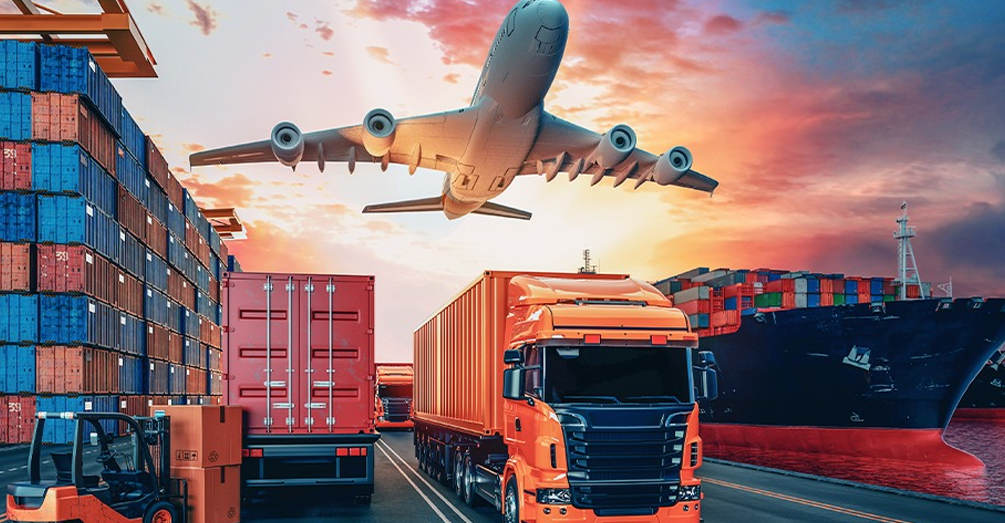
| Method | Transit Time | Cost Range | Best For | Key Providers |
|---|---|---|---|---|
| Express Air (DHL/FedEx) |
3-7 business days | $10-$22 per kg |
• High-value electronics • Critical spare parts • Urgent documents |
DHL, Aramex, FedEx |
| Air Freight (General Cargo) |
5-12 business days | $4-$9 per kg |
• Pharmaceuticals • Fashion goods • Time-sensitive shipments |
Ethiopian Airlines Cargo, Kenya Airways Cargo |
| Sea LCL (Less Container Load) |
28-45 calendar days | $120-$280 per CBM |
• Small to medium shipments • Mixed product orders • Lower volume imports |
Maersk, CMA CGM, MSC |
| Sea FCL (Full Container) |
24-38 calendar days |
20': $1,800-$3,200 40': $3,100-$4,800 40HQ: Additional $400 |
• Large volume shipments • Bulk commodities • Regular imports |
COSCO, Hapag-Lloyd, Evergreen |
Pro Tip: For East African destinations, consider feeder services through Mombasa or Dar es Salaam which can reduce inland transport costs by up to 30% compared to direct deliveries.
3. Import Duties & Taxes

| Fee Type | Rate Range | Calculation Basis | Common Exemptions |
|---|---|---|---|
| Customs Duty |
• General: 0-35% • Raw materials: 0-10% • Finished goods: 10-35% |
CIF Value (Cost + Insurance + Freight) |
• Medical equipment • Educational materials • Capital goods (varies by country) |
| Value Added Tax | 5-20% (varies by country) |
CIF Value + Customs Duty |
• Basic food items • Medical supplies • Agricultural inputs |
| Import Levies |
• Surtaxes: 0-10% • Inspection fees: 0.5-2% • Statistical fees: 0.1-0.5% |
CIF Value or Duty Paid Value | Varies widely by country |
| Documentation Fees |
• Processing: $30-$150 • Clearance: $50-$200 • Certificate fees: $20-$100 |
Per shipment | Diplomatic shipments |
Pro Tip: Utilize preferential trade agreements like China-Africa Development Fund schemes which can reduce duty rates by 10-50% for eligible products in many African countries.
4. Top Import Products
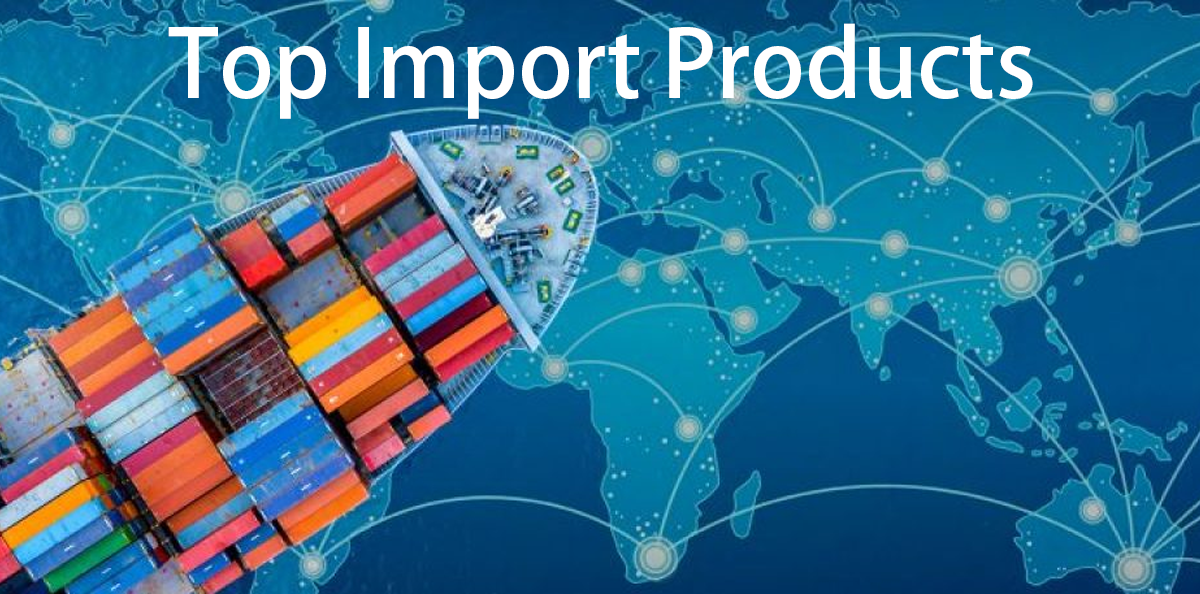
| Product Category | Top Selling Items | Market Share | Profit Margin | Key Suppliers |
|---|---|---|---|---|
| Electronics & Appliances |
• Mobile phones • Home appliances • Solar energy products • Computer equipment |
28% | 30-60% |
Shenzhen, Guangzhou |
| Textiles & Apparel |
• Ready-to-wear clothing • Footwear • Fabric materials • Traditional attire variants |
22% | 25-50% |
Yiwu, Shanghai |
| Construction Materials |
• Cement and steel products • Ceramic tiles • Plumbing fixtures • Electrical fittings |
19% | 20-45% |
Qingdao, Xiamen |
| Agricultural & Food Products |
• Rice and grains • Processed foods • Agricultural machinery • Fertilizers |
16% | 15-40% |
Ningbo, Guangzhou |
Pro Tip: Solar-powered products have shown exceptional growth across Africa, with average profit margins 15-20% higher than conventional alternatives due to high demand and limited local competition.
5. Cost Calculation Breakdown

| Cost Component | 20' Container | 40' Container | LCL (per CBM) | Notes |
|---|---|---|---|---|
| Ocean Freight | $1,800-$3,200 | $3,100-$4,800 | $120-$280 | From Shanghai to Lagos/Durban |
| Customs Duties | 5-35% of goods value | 5-35% of goods value | 5-35% of CIF | Highly variable by country and product |
| VAT | 5-20% of (Goods+Freight+Duty) | 5-20% of (Goods+Freight+Duty) | 5-20% of (Goods+Freight+Duty) | Country-specific rates |
| Port & Handling Fees | $400-$800 | $600-$1,200 | $80-$180 | Includes THC, documentation, terminal fees |
| Inland Transport | $200-$1,500 | $350-$2,500 | $50-$300/CBM | Highly dependent on final destination |
Pro Tip: Inland transportation costs can add 20-50% to your total landed cost in landlocked African countries. Consider establishing regional distribution hubs in coastal cities to optimize these expenses.
6. Customs Clearance Process

| Step | Timeframe | Required Documents | Fee Range | Processing Notes |
|---|---|---|---|---|
| 1. Document Preparation | 7 days before arrival |
• Commercial invoice (certified) • Packing list • Bill of Lading/AWB • Certificate of Origin |
$50-$200 (document fees) | Many countries require documents legalized by embassy |
| 2. Declaration Submission | 3 days before/after arrival |
• Import declaration form • Payment receipts • Special permits (if required) |
$100-$300 (processing fee) | Electronic submission where available reduces time |
| 3. Inspection & Assessment | 2-10 working days |
• Product samples (if requested) • Compliance certificates • Additional documentation |
$150-$500 (inspection fee) | Random selection in most countries, targeted for high-risk goods |
| 4. Duty Payment & Release | 1-3 days after assessment |
• Payment confirmation • Release order • Delivery instructions |
Duty + VAT + $50-$150 release fee | Electronic payments significantly speed up this step |
Pro Tip: Using a local customs broker with established relationships can reduce clearance times by 40-60% in most African countries, offsetting their service fees (typically 2-5% of shipment value).
7. Finding Reliable Suppliers

| Supplier Type | Advantages | Risks | Verification Methods | Recommended Platforms |
|---|---|---|---|---|
| Manufacturers |
• Lower unit costs • Product customization • Quality control oversight |
• Higher minimum order quantities • Limited market knowledge • Communication barriers |
• Factory audits • Export license verification • African market references |
• Made-in-China.com • 1688.com • Canton Fair |
| Export Trading Companies |
• Lower MOQ flexibility • Africa-specific expertise • Consolidated shipping |
• Higher price margins • Variable quality control • Limited customization |
• Client references in Africa • Sample verification • Trade history check |
• Alibaba.com • Global Sources • China-Africa Trade Platforms |
| Sourcing Agents |
• Local market knowledge • Quality inspection • Logistics coordination • Language support |
• Service fees (5-15%) • Potential conflicts of interest • Reliance on third party |
• Detailed contract review • Client testimonials • Verification of credentials |
• China Sourcing Fairs • Professional networks • Industry associations |
Pro Tip: Prioritize suppliers who have experience with African markets, as they understand regional product requirements, labeling regulations, and shipping documentation needs specific to African countries.
8. African Free Zones Benefits
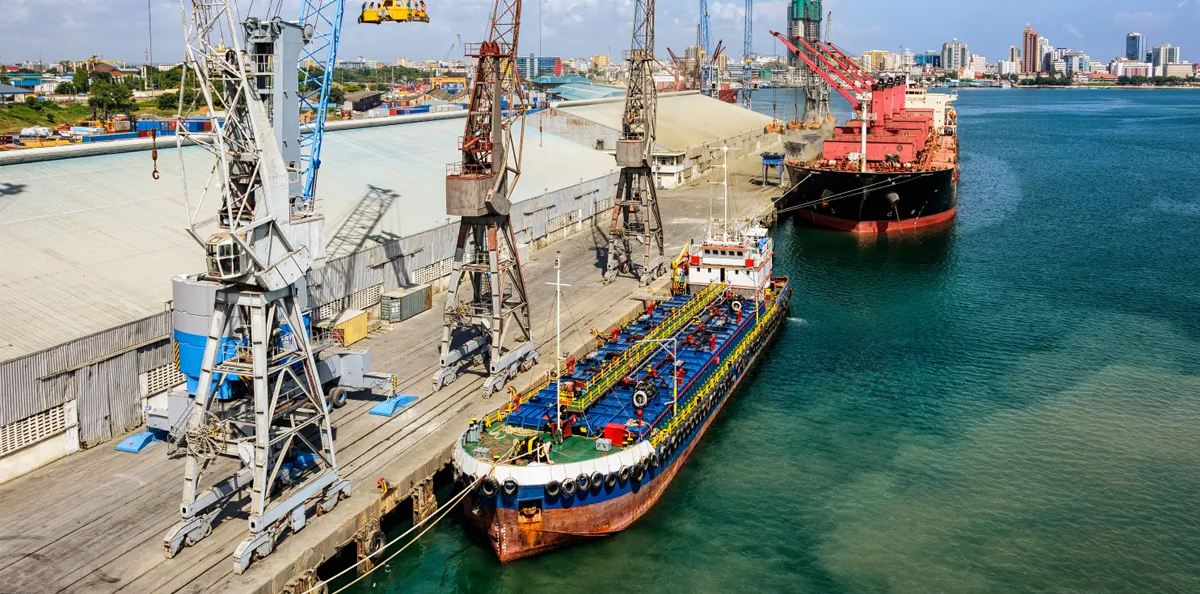
| Free Zone | Location | Key Features | Setup Cost | Ideal For |
|---|---|---|---|---|
| Djibouti Free Zone | Port of Djibouti |
• 0% corporate tax for 50 years • 100% foreign ownership • Duty-free imports/exports |
$8,000-$15,000 | East Africa distribution, logistics |
| Lagos Free Zone | Lagos, Nigeria |
• 10-year tax holiday • Duty-free status • Access to 200M+ market |
$15,000-$30,000 | Manufacturing, consumer goods |
| Durban Free Zone | Durban, South Africa |
• Reduced corporate tax (10%) • Duty suspension • Gateway to Southern Africa |
$12,000-$25,000 | Automotive parts, machinery |
| Casablanca Free Zone | Casablanca, Morocco |
• 15-year tax exemption • Access to EU and African markets • Modern infrastructure |
$10,000-$22,000 | Textiles, electronics assembly |
Pro Tip: African free zones can reduce total landed costs by 15-30% through tax savings and streamlined customs procedures, with the added benefit of simplified re-export to neighboring countries under AfCFTA.
9. African Port Facilities
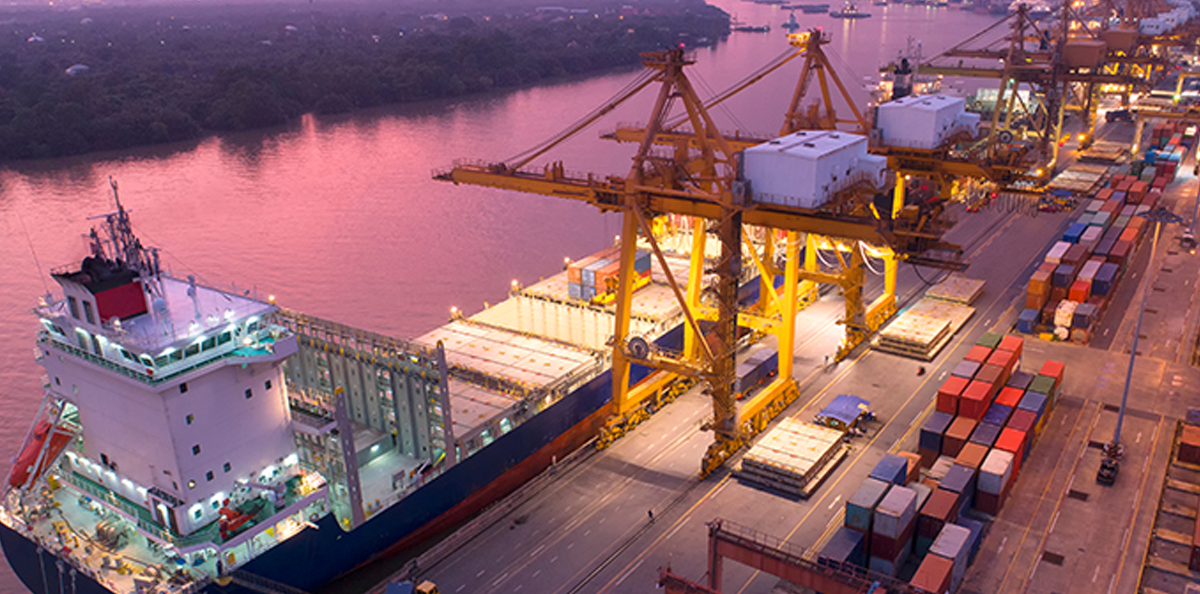
| Facility | Specifications | Operational Features | Storage Policy | Key Advantages |
|---|---|---|---|---|
| Lagos Port Complex (Nigeria) |
• 20 berths • 12m draft • 3.2M TEU capacity |
• Major West Africa hub • Container and bulk cargo • Connected to rail network |
• 3 days free • $40-$60/day after |
Largest market access in West Africa |
| Port of Durban (South Africa) |
• 58 berths • 19m draft • 2.9M TEU capacity |
• Southern Africa's busiest port • Container, bulk, and breakbulk • Automated terminals |
• 5 days free • $35-$50/day after |
Modern infrastructure with excellent rail connections |
| Port of Mombasa (Kenya) |
• 19 berths • 12.5m draft • 1.2M TEU capacity |
• Gateway to East Africa • Inland container depots • Specialized cargo handling |
• 4 days free • $30-$45/day after |
Serves landlocked countries like Uganda, Rwanda, Burundi |
| Port of Djibouti |
• 15 berths • 18m draft • 1.5M TEU capacity |
• Strategic Red Sea location • Multipurpose terminals • Railway connection to Ethiopia |
• 7 days free • $25-$40/day after |
Fastest transit to Ethiopia and central Africa |
Pro Tip: Consider port congestion when planning shipments - Lagos and Mombasa often experience delays of 5-10 days during peak seasons, which can be mitigated by using smaller feeder ports in the region.
10. Cultural Considerations

| Aspect | African Practices | International Comparison | Business Impact | Best Approach |
|---|---|---|---|---|
| Business Relationships |
• Personal trust is fundamental • Community and family ties matter • Relationship-building precedes business |
Often contract-focused Results-oriented from outset |
Rushing negotiations can undermine trust and opportunities | Invest time in face-to-face meetings, show genuine interest in local culture |
| Communication Styles |
• Often indirect and contextual • Non-verbal cues important • Respect for elders and authority |
More direct and explicit Focus on efficiency |
Misinterpretation can lead to failed negotiations | Speak clearly but politely, ask clarifying questions, be patient |
| Religious Considerations |
• Significant Muslim and Christian populations • Religious holidays observed • Dietary restrictions important |
More secular business environment Less emphasis on religious practices |
Cultural insensitivity can damage relationships irreparably | Respect prayer times, avoid alcohol in Muslim areas, acknowledge major holidays |
Pro Tip: Africa's cultural diversity means practices vary significantly between regions. Research country-specific customs before business trips, and consider engaging local consultants to navigate cultural nuances.
11. Legal & Regulatory Compliance

| Requirement | Affected Products | Key Standards | Non-Compliance Risks | Compliance Solutions |
|---|---|---|---|---|
| Product Certification |
• Electrical goods • Medical devices • Automotive products • Food items |
• SONCAP (Nigeria) • SABS (South Africa) • KEBS (Kenya) • Various country-specific standards |
• Product seizure • Fines up to 100% of value • Market ban |
Pre-export certification, third-party testing |
| Labeling Requirements |
• All consumer products • Food and beverages • Pharmaceuticals • Cosmetics |
• Local language requirements • Ingredient listing • Safety warnings • Country of origin |
• Mandatory relabeling • Delays and fines • Product rejection |
Country-specific packaging, local language labels |
| Import Licensing |
• Agricultural products • Pharmaceuticals • Chemicals • Textiles (in some countries) |
• Prior approval required • Quota restrictions • Registration processes |
• Shipment delays • Forfeiture of goods • Legal penalties |
Early application for licenses, local partner assistance |
Pro Tip: Regulatory requirements vary dramatically across African countries. Invest in country-specific compliance research or engage local experts to avoid costly delays and penalties.
12. Insurance & Risk Management

| Coverage Type | Premium Rate | Key Protections | Exclusions | Claims Process |
|---|---|---|---|---|
| All-Risk Marine Cargo |
0.7-1.5% of cargo value |
• Loss or damage at sea • Port handling issues • Fresh water damage • Theft during transit |
• War and political risks • Inherent vice • Poor packaging |
• Immediate notification • Survey report within 7 days • 30-60 day processing |
| Political Risk Coverage |
0.5-1.2% of cargo value |
• Civil unrest • Cargo seizure • Currency inconvertibility • Breach of contract by government |
• Sanctions violations • Non-payment by buyers • Commercial disputes |
• Official documentation • Government reports • 60-90 day processing |
| Inland Transit Insurance |
0.3-0.8% of cargo value |
• Road/rail transport risks • Warehouse storage • Last-mile delivery • Local theft |
• Improper loading • Unregistered vehicles • Extended storage beyond terms |
• Police report for theft • Carrier documentation • 20-40 day processing |
Pro Tip: For African shipments, a comprehensive insurance package combining marine, political risk, and inland transit coverage (total 1.5-3% of cargo value) is strongly recommended due to the diverse risk factors across the continent.
Conclusion: Your China-Africa Shipping Strategy
This comprehensive guide has equipped you with Africa-specific knowledge to:
✓ Navigate the diverse African market landscape effectively
✓ Select optimal shipping routes and methods for different African regions
✓ Calculate accurate landed costs across various African countries
✓ Understand and comply with diverse regulatory environments
✓ Identify high-potential product categories for African markets
✓ Manage risks unique to African trade routes
Next Steps:
1. Conduct detailed market research for your target African countries
2. Establish relationships with local partners in key African markets
3. Develop a regional distribution strategy leveraging African free zones
4. Implement a comprehensive compliance and risk management system
For personalized consultation on your China-Africa shipping strategy, contact our experts today for a free market assessment and tailored logistics solution designed for African markets.

